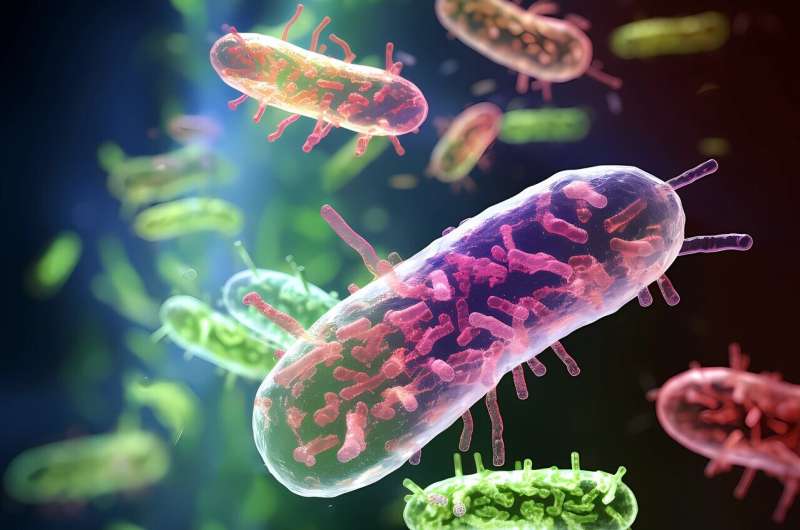Science
New Bacterial Repair Mechanism Revealed as Antibiotic Target

Researchers at the University of Edinburgh have identified a new mechanism that contributes to bacterial resistance against common antibiotics. This discovery, published on November 11, 2025, in the journal Nature Communications, could lead to innovative treatment strategies for combating antimicrobial resistance (AMR), which poses a significant global health threat.
Understanding Bacterial Resistance Mechanisms
The study reveals that a specialized repair system, known as Rtc, plays a crucial role in helping certain bacteria survive antibiotic treatments. Many antibiotics function by inhibiting the production of proteins necessary for bacterial growth. The Rtc system enables bacteria to repair damaged RNA, which is vital for translating genetic information into functional proteins. This ability allows bacteria to continue their growth even in the presence of antibiotics, complicating treatment efforts.
Researchers discovered that the expression of the Rtc repair system varies significantly among individual bacterial cells, leading to unpredictable responses to antibiotic treatments. This variability may explain why some bacterial infections are particularly challenging to treat, as certain bacteria can endure antibiotic exposure far better than others.
Implications for Future Treatments
The team utilized a combination of computer modeling and laboratory experiments focused on E. coli, a bacterium known for developing resistance to various antibiotics. Their findings suggest that targeting specific components of the Rtc repair system may enhance the effectiveness of existing antibiotics, offering new hope for eradicating stubborn infections.
Dr. Andrea Weisse, who led the study, emphasized the intelligence of bacteria in evading antibiotic treatments. “Bacteria are clever little things. They have been learning how to dodge our antibiotics, and they are getting better at it all the time,” she stated. “If we don’t find new drugs—or new tricks to outsmart them—we are in trouble.” She further noted that understanding the mechanisms behind bacterial defenses could lead to smarter approaches in treating infections effectively.
This research not only underscores the complexity of bacterial survival strategies but also opens up new avenues for developing therapies that are more effective in the fight against AMR. As the world grapples with the rising tide of antibiotic-resistant infections, the findings from this study could play a pivotal role in shaping future medical interventions.
-

 Science3 weeks ago
Science3 weeks agoInterstellar Object 3I/ATLAS Emits Unique Metal Alloy, Says Scientist
-

 Science4 weeks ago
Science4 weeks agoResearchers Achieve Fastest Genome Sequencing in Under Four Hours
-

 Politics4 weeks ago
Politics4 weeks agoAfghan Refugee Detained by ICE After Asylum Hearing in New York
-

 Business4 weeks ago
Business4 weeks agoIconic Sand Dollar Social Club Listed for $3 Million in Folly Beach
-

 Health4 weeks ago
Health4 weeks agoPeptilogics Secures $78 Million to Combat Prosthetic Joint Infections
-

 Lifestyle4 weeks ago
Lifestyle4 weeks agoJump for Good: San Clemente Pier Fundraiser Allows Legal Leaps
-

 Business4 weeks ago
Business4 weeks agoMcEwen Inc. Secures Tartan Lake Gold Mine Through Acquisition
-

 Science4 weeks ago
Science4 weeks agoMars Observed: Detailed Imaging Reveals Dust Avalanche Dynamics
-

 Health4 weeks ago
Health4 weeks agoResearcher Uncovers Zika Virus Pathway to Placenta Using Nanotubes
-

 World4 weeks ago
World4 weeks agoUS Passport Ranks Drop Out of Top 10 for First Time Ever
-

 Entertainment4 weeks ago
Entertainment4 weeks agoJennifer Lopez Addresses A-Rod Split in Candid Interview
-

 Business4 weeks ago
Business4 weeks agoSan Jose High-Rise Faces Foreclosure Over $182.5 Million Loan








